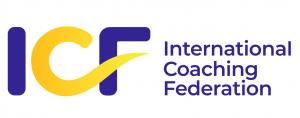Diploma in Mentoring & Supervision for Coaches
If you are new to the world of coaching, we recommend that you read this guide before you choose a course.
Why Attend?
This course is designed for those who wish to develop their skills as professional supervisors of coaches. This Diploma programme is highly experiential, with previous participants reporting professional and life changing experiences. It draws from the world of Transactional Analysis, reflective practice and supervision theory adapted from the world of therapy.
Entry Requirements
The ideal participant will be a practicing coach, with at least 150 hours of coaching practice and a range of other professional and life experiences and a commitment to professional, competent and ethical practice. You will be committed to your own personal and professional development and to sharing your learning with others in order to develop the field of coach supervision and the emergent professions of Coaching.
Content
Our Diploma in Coach Supervision coaching course is run online via zoom platform, and It is delivered by experienced coaches at PCC/MCC level. We usually organise a small group of participants. It has been developed to comply with the ICF requirements for ICF Coach Supervisors and provides 28 hours of Supervision training as well as 28 ICF CEUs.
It runs in 5 days, divided in 2 modules, as follows:
- 1st module: First 3 days of training will be from January the 18th till the 20th.
- During the 6 months after the end of the first module, participants are expected to deliver supervision and to bring their cases for discussion on the second module. The Performance solution will provide during these 6 months, 8 hrs of supervision on the participants' coaching practice.
- 2nd module: last 2 days of training (in July, yet to be scheduled). On the 2nd day the final practical exam will be taken.
Diploma in Mentoring & Supervision Course details
-
- The nature of Coach Mentoring and Supervision
- Contracting, ethics, boundaries and safe practice
- Mentoring skills
- Qualities, roles and responsibilities of great supervision
- Core skills of supervision and 4 levels of development
- Transference and counter-transference
- Distance and containment
- The change curve, competence and strokes
- The seven eye process
- The in house supervisor and wider organisational application
- The concept of ‘bridging’
- Games, dramas and creating shifts
- Interpersonal process recall
- Partnering in the thinking environment
- Pairs, groups and action learning in supervision
- Case study
- Spirituality in supervision
- Reflection exercises in supervision
- Advanced practice and CPD
If you are ready to book your place simply add the course below to your basket in order to check out. You can make payment by bank transfer, cheque or via our online payment gateway.





